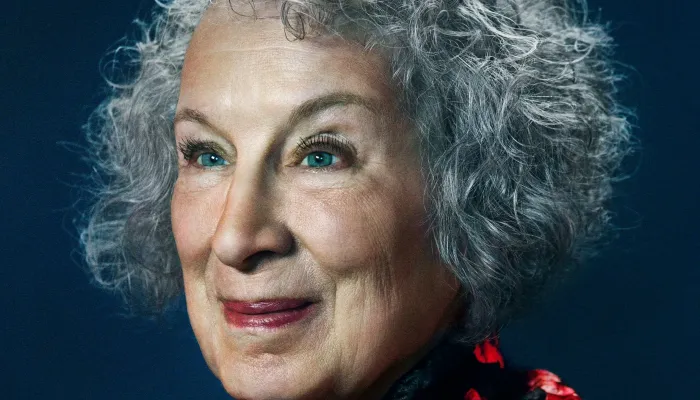Doyali Islam
Biography
Canadian poet Doyali Islam is the author of the 2020 Griffin Poetry Prize shortlisted heft (McClelland & Stewart, 2019), a book that was also honoured by the Province of Ontario as a finalist for the 2020 Trillium Book Award for Poetry and by the League of Canadian Poets as a finalist for the 2020 Pat Lowther Memorial Award.
Doyali has participated in CBC Books' Why I Write video-interview series, during which she said, “My advice would be to read and write poetry not just from mind intelligence, but from body intelligence. You will know that your language is working when you read or recite it back to yourself and you feel it working on you viscerally and emotionally. So render your technique in a rigorous way – but inform it with your heart, your spirit, and empathetic imagination.”
Doyali has discussed the value of silence on CBC Radio's The Sunday Edition; language, form, beauty, and empathy with Anne Michaels in CV2; and the relationship between poetry and the body on CBC Radio's The Next Chapter. Doyali has also been interviewed about heft through Oxford Brookes Poetry Centre Podcast.
Speaking about her poetics in an Adroit Journal conversation with Forrest Gander, Doyali said, “I guess I would consider the necessity to write about longing, pain, and despair a poetics of survival. I want to survive. I want you to survive. I want my readers-listeners to survive. I want certain kinds of language to survive. I want certain versions of history to survive. I want questions to survive.”
Of Bangladeshi and Arab ancestry, Doyali lives in Canada on the traditional territory of many nations including the Mississaugas of the Credit, the Anishnabeg, the Chippewa, the Haudenosaunee, and the Wendat peoples.
Micro-interview
Yes, I read poetry in high school — of my own volition! I remember enjoying Max Ehrmann’s prose-poem, “Desiderata,” as well as Coleman Barks’s translations of Rumi’s poetry.
I started writing poetry at the age of seven or eight, in grade three. Instead of going outside for recess, I wrote a poem in AABB quatrains — “A Poem About Birds” — on the school computer. Huge early-’90s sans-serif typeface. Printout on continuous-form paper. I still have that poem! At some point after that, I started keeping an exercise-book of poetry forms — haiku, tanka, cinquain, couplet, limerick, sonnet — that I would challenge myself to write. (I still have that exercise-book.)
In grade four, I wrote several short stories and poetry collections for which I would create elaborate front covers, back covers, and copyright pages. My teacher, Mr. Alderson, was good enough to have each one spiral-bound for me. I realized only last year that my juvenilia — both short fiction and poetry — is very humorous. I have been reclaiming that literary sensibility in small ways in my second poetry book, heft (M&S, 2019).
I think I came to understand that my “work” was poetry from the age of seven, soon after composing “A Poem About Birds.” I always submitted poems to Toronto District School Board’s annual anthology, which was then called Acorns. I never had a clue what I wanted to “be” in the way of a “proper” or “financially-viable” career, but I knew that I loved to write poetry.
However, whenever someone asks me exactly when I first started writing poetry, I also think of my friend Tim Robertson’s reflection on his own creative start. When I lived in North Bay, Tim told me that his “first poem” involved being a child, sitting on a rock, and scratching the letters m, o, and m into its surface. Tim tells it more beautifully — but this story really struck me and made me interrogate, rethink, and widen my definition of “poetry.” Beginnings — creative and otherwise — are often blurry and/or complex. What constitutes “the moment” and what constitutes “the moment before”? What separates them? (Physicists, Buddhists, river, cosmos: answer me!)
I can imagine as many “jobs” as there are poets — or, rather, poems! However, as a poet, I hope to never merely reproduce culture. For me, a poem that is “working” is an intervention. A poem that is “working” makes some kind of trespass. (I try to find alternate and truer words for “good” and “bad” — hence, my use of the adjective “working.”)
As a poet, I also hope that each of my poems — and books — builds and offers a space of refuge for and connectivity to its reader/listener. On the idea of “building”: I think of myself as an architect who constructs my own private architecture of resilience — who writes for my own intersecting emotional, energetic, spiritual, and social survivals — but who then holds a door/window/crack open so that others can find a temporary home inside this dwelling, too.
I hope that each of my poems enables questioning, courage, empowerment, and/or restoration.
On the Poem "bhater mondo":
The poem "bhater mondo" was inspired by a memory of my mother feeding me rice balls when I was a child. Sick at home, missing school for the day, the particular bustling energy with which my mother cooked and the love she imparted through that simple dish is an intimacy and a tenderness I wanted to remember.
On the Poem "susiya":
"I was deeply moved and inspired by a very spare poem in Against Forgetting: Zbigniew Herbert's The Wall. The Wall opened me up to poetry's capacity to manipulate time, and led to my manipulation of space in the poem susiya." - https://www.cbc.ca/books/griffin-poetry-prize-finalist-doyali-islam-on-6...
The Poetry in Voice online anthology contains so many wonderful poems, it’s difficult to choose just one — but I would select Alice Oswald’s “A Short Story of Falling.” This poem staves off existential woes and holds me to its language and rhythms.
I heard/witnessed Alice Oswald reciting this poem live at the 2017 Griffin Poetry Prize reading at Koerner Hall. I wept. I was restored.


